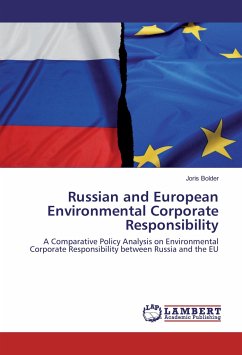As a new approach to tackling global climate change, and to support sustainable development and other environmental issues, the concept of Corporate Social Responsibility (CSR) currently dominates many debates in business and political science. Experts express radically opposing opinions about the extent to which state responsibilities can be transferred to the corporate sector, while governments design various methods to stimulate or force the behaviour of businesses. Such different views and approaches raise questions on the potential of CSR in international strategies and global outcomes. In particular, the ambitious Western ideals might not suit the political systems of developing and transitional countries, and could lead to massive environmental and financial failure. One way to capture the constraints and opportunities of this situation is to compare the European Union with the neighboring Russian Federation, as this report will show.
Hinweis: Dieser Artikel kann nur an eine deutsche Lieferadresse ausgeliefert werden.
Hinweis: Dieser Artikel kann nur an eine deutsche Lieferadresse ausgeliefert werden.








